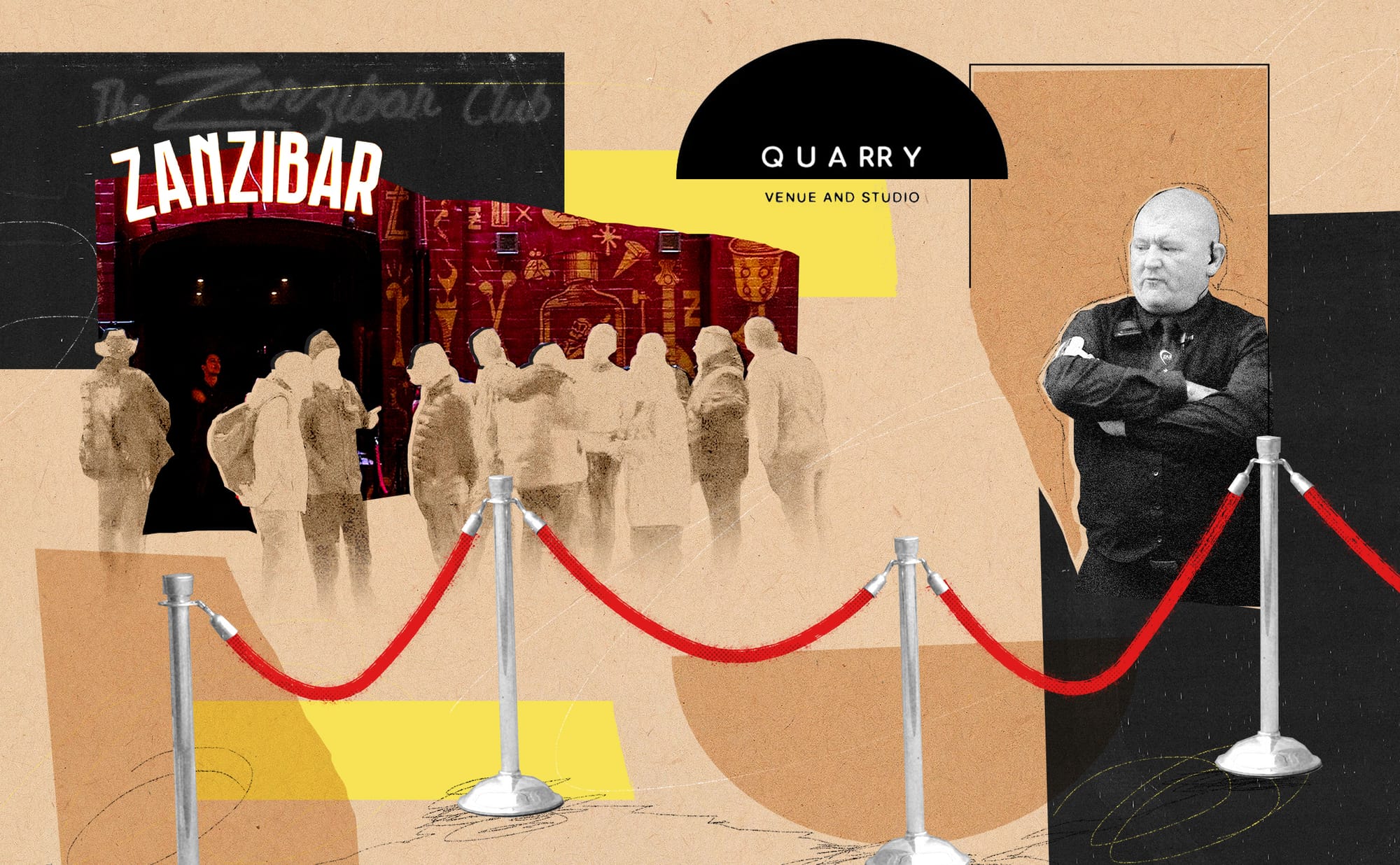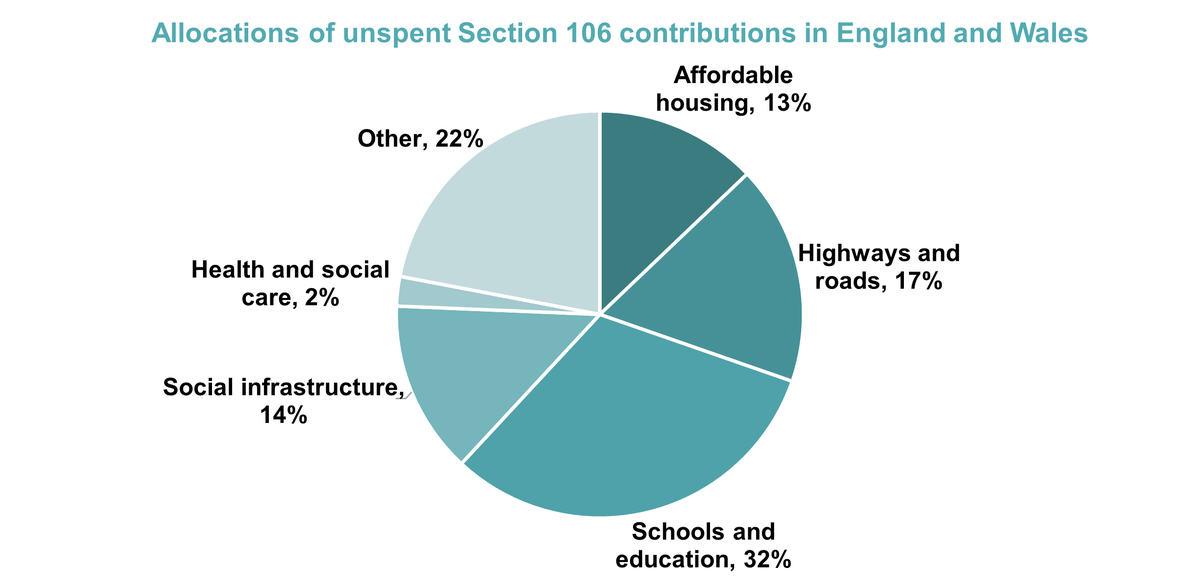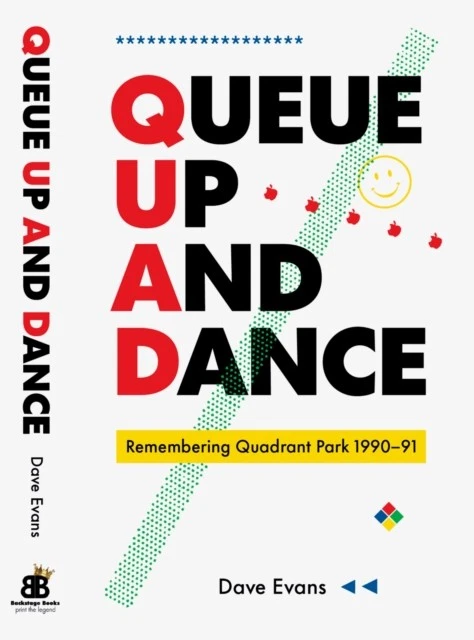The council are suing developers over £1.5m. But millions already received has gone unspent

Plus: a new book on Quadrant Park and a lucky escape for Everton FC
Hello there! A warm welcome to The Post. What's that, I hear you ask? The Post is Liverpool's quality newspaper delivered to over 35,000 readers. If you'd like briefings, features and other editions delivered directly to your email free of charge, then you're in the right place.
Click the button below to sign up for free.
Dear readers — a warm welcome to your Monday briefing, and a happy Diwali to all those celebrating. We’ve got a bumper edition for you today, including a book review from Liverpool’s finest, David Lloyd, and our big story: how developers in the city have failed to pay more than £1.5 million in section 106 payments.
Catch up on The Post:

As the month draws to a close, we’d like to celebrate some of our favourite reads from October that you may have missed.
- Kicking things off, we have Saturday’s brilliant piece by Laurence, criticising Liverpool’s poor management of its proud musical legacy. The story got lots of you talking on social media, with Icicle Works founder and singer-songwriter Ian McNabb saying: “This is an interesting read. Is there still magic in the air? This piece suggests otherwise”, while admins of the Liverpool Bands online bulletin board about the city’s music scene said that “if you care about grassroots music in the city, this is an important read.”
- While Abi was away, Laurence also revisited Sefton’s children’s services after Jack’s landmark investigation into them back in 2022. In his piece, he found that serious concerns still remain regarding SEN provisions and a breakdown in communications between the council body and a family advocacy group.
- And the brilliant David Lloyd also returned to our pages this month, visiting the city’s markets to discover a surprising revival. Read that here.
The big story: The council are suing developers over £1.5m. But millions already received has gone unspent
Top line: The city council is taking legal action against developers who owe more than £1.5 million through Section 106 agreements. But what are Section 106s, and how did we get to this point?
Context: First introduced in 1990, Section 106 agreements are deals in which firms, as part of planning permission for their commercial schemes, agree to give money to be spent on facilities such as affordable housing, recreation centres and children’s playgrounds. Councils demand them if they have concerns that a project may cause the local community to miss out in any way — for example, a reduction in public space, or an increase in traffic.
Section 106s are legally binding. Despite that, this and next month Liverpool City Council will pursue three outstanding debts totalling £947,000 in unpaid Section 106 fees. A council report said that 11 other companies — owing a total of £465,000 — will also be taken to court. The council said it would not name the firms it is taking legal action against.
"As part of our improvement journey,” the council said in a statement, “we now have robust procedures in place for recovering Section 106 contributions owed to the council for the benefit of residents.”
But in recent months the council has come in for criticism – not for the failure to collect these fees, but in a reticence to spend them. In May, The Post reported about the millions of compensatory payments made by developers through the Section 106 scheme that still sat in the council’s coffers.

In that article, Abi told the story of residents such as Lynne Moneypenny, who had spent the previous decade fighting for green spaces in her local Speke. After tarmacking over and building on fields, developers made Section 106 payments to the council, which could and should have been spent on parks and other social amenities to compensate locals for the inconvenience and loss of the fields. But Lynne’s FOI (Freedom of Information) requests revealed that only 10% of the £500,000 Speke had received through Section 106s had been spent.
That was not an isolated case. Andrew Makinson, the Liberal Democrat councillor for Church, had submitted his own FOIs after discovering a council report revealing that Liverpool had over £17 million in Section 106 payments banked. It transpired that although £12 million of that had been allocated to projects, none of it had been spent.
"[The council] have sent the message in the past that they are not serious about collecting this money and when they do collect it, they are not serious about spending it," Makinson said this week.
Back in May, Bob McGeady — a leading planning lawyer in the UK, who has worked on major legal agreements in relation to Section 106 — told The Post that Liverpool “is a microcosm of the rest of the country”. In total, councils in England and Wales had accrued nearly £4 billion in unspent Section 106 payments. According to the BBC, the Home Builders Federation reckon the figure at £6 billion.

A big problem for Liverpool and elsewhere, as Makinson told The Post earlier this year, is that there is a time limit for these payments to be spent. If after ten years the council has not availed themselves of the Section 106 funding, developers are entitled to ask for the money back. McGeady stressed that this is rare, as firms see their Section 106 commitments as just an extra cost at the start of the project. But inflation can be an issue: what could have been used ten years ago to fully restore a park, or build a new green space, “no longer stretches that far,” as Makinson said.
Bottom line: In May, Liverpool City Council told The Post that the scope for investing section 106 compensation is “tightly constrained by law, relating to the specific circumstances of the development that provided the funding, and the scope of our statutory Local Plan”. And in order to recover about £600,000 owed to it, the council has had to go to court in relation to seven different developments since May 2023, according to a report going before city finance chiefs on Wednesday. There’s doubtless a lot of red tape and hoops to jump through to obtain these payments and then ensure they are distributed for the benefit of residents.
But Makinson may have a point regarding information and transparency. As he told us earlier this year, “councillors don’t know there’s this money in their wards that can be spent on things that residents are complaining about,” and an accessible and publicly available list of Section 106 contributions could greatly help communities know what they’re entitled to.
Photo of the week

A wonderful photo of a young boy on horseback on Ainsdale beach, taken by Post subscriber Daryl Feehely.
We’re always keen to feature photos from our readers — if you have a snap you’d like to share please email it to editor@livpost.co.uk for a chance to be featured in our Monday editions.
Your Post briefing
A lucky escape: A man who almost purchased Everton Football Club has now been charged with defrauding investors of more than $500 million. Josh Wander is the co-founder of investment firm 777 Partners, and according to American prosecutors he stands accused of using fake financial documents to inflate the company’s finances. "Wander used his investment firm…to cheat private lenders and investors out of hundreds of millions of dollars by pledging assets that his firm did not own, falsifying bank statements, and making other material misrepresentations about 777's financial condition," said US attorney Jay Clayton. Special agent Ricky J Patel added that the picture put forward of 777's finances was "an illusion of stability that was a years-long house of cards". In June 2024, 777 Partners attempted to acquire Everton before new owners the Friedkin Group bought the club from Farhad Moshiri in December instead.
George Knibb, a former councillor for Norris Green and Everton, is reported to have died over the weekend. A Labour stalwart from the Militant Tendency era, George made his start as a gardener in the city before being elected as a councillor in 1987, and again in 2019. His brother Phil Knibb is also well known in Liverpool — the man behind numerous companies and charities across the city, including Alt Valley Community Trust and the North Liverpool Regeneration Company.
Bus lanes may be making their grand return to Liverpool. The council has revealed proposals to create a new bus lane on Longmoor Lane in Fazakerley, as well as another on Upper Parliament Street in Toxteth. Originally, bus lanes were scrapped under mayor Joe Anderson in 2014, before some began being reintroduced in 2023. The news has proved controversial, after some north Liverpool councillors said they had been given no advance notice of the council's plans. The council said no fines would be issued for cars straying into the "experimental" bus lanes until they had been in place for at least six months. Around £125,000 is due to be spent on the lanes.
And a watchdog report into the conduct of police during and after the Hillsborough disaster will be published next month. The Independent Office for Police Conduct (IOPC) had been investigating South Yorkshire Police for over a decade, and confirmed in March that no officers would face misconduct hearings because at the time the law did not require police to have a "duty of candour". Instead, the report will bring together "the key findings of our work, a summary of the outcomes of the complaints we considered and the key evidence we used to inform those decisions". The IOPC said the exact date the report will come out will be clarified in coming days and the families of the victims involved in the tragedy would be able to examine the report before it is published.
Post Picks
📕Horror writer Ramsey Campbell will be in Watersones, Liverpool One tonight to celebrate the release of his latest novel An Echo of Children. Campbell, who Laurence interviewed for The Post last year, is not just a brilliant writer but a fine public speaker and raconteur. Find out more and book tickets here.
🎨Enjoy a collection of paintings by Jim Moir over at Lady Lever Art Gallery from today until 2nd November. Known to many as comedian Vic Reeves, Jim Moir is also a talented artist and passionate birdwatcher. This exhibition brings together over 40 of his finely crafted paintings, celebrating birds in flight, at rest, and in the shifting light of dawn and dusk.
🎸A rather nostalgic recommendation from Abi. Birmingham band The Clause head to Liverpool’s Jacaranda for their album launch show on Tuesday. In her early teens, Abi was in a rock band in the second city and used to spend her days bouncing around venues with the likes of The Clause and a host of other West Midlands artists. More details on the gig here!
🎇The eighth edition of River of Light festival will return from this Friday until Sunday 2nd November. This year's theme is The Science of Light — find out more details here.
Book review: Queue Up And Dance 📕

If you remember the Quad, you weren't there. But don't worry, if you don't remember it and you were there (…is this getting too complicated now…?), there's a brilliant new book that tells the tale of the seminal Bootle nightclub: Quadrant Park.
Queue Up And Dance (see what they did there?) is a sharply designed aural history of the club that started it all. The early 90s forerunner to all that was brilliant, and ultimately — obviously — self destructive about club culture, Liverpool style. The UK's first superclub, Quad transformed a scrappy north Liverpool warehouse into one of the most important petri dishes for house music's glorious ascendance over this side of the pond.
"We'd be up early, because we'd be buzzing because we knew we were going out," recalls Wayne Goldstein of those heady days. "The atmosphere was unbelievable. Like when you were a kid and you got something you really wanted."
The book is one long heady rush through memories like this: raw, unfiltered, euphoric, wide-eyed and, yes, innocent. As Jayne Casey says: "It was escapism after a period of Liverpool being down on its arse. It wasn't superficial. It wasn't about clothes. It was just about the music."
On any given Saturday in 90 or 91, says author Dave Evans, there would have been over 4000 people from across the North — and beyond — living their very best nights in the UK's first legal all-nighters. Today, nothing remains to prove any of this wasn't some mass fever dream. But for those who know, this set list of memories from DJs, journalists, dancers and doormen…and, mostly, clubbers, is a fitting testament. A document to a moment when the bass was heavy, the lights were low, and for a few precious hours in a Bootle warehouse, everyone was exactly where they belonged. “Sometimes putting into words exactly what happened on the dance floor was impossible,” Dave says. Well, yes. But few have come as close as this.
Queue Up And Dance – Backstage Books
Review by David Lloyd
If someone forwarded you this newsletter, click here to sign up to get quality local journalism in your inbox.
Thanks for reading today's action-packed Monday briefing. Remember: with our special introductory offer, you become a Post member for just £4 a month for the first three months. Click the button below to give it a go.
If you’d like to sponsor editions of The Post and reach over 35,000 readers, you can get in touch or visit our advertising page below for more information

Comments
Latest
The clockmaker of Wavertree
One of Merseyside’s oldest sports clubs still play every Saturday
Does Liverpool have a ketamine problem?
The other Liverpool
The council are suing developers over £1.5m. But millions already received has gone unspent
Plus: a new book on Quadrant Park and a lucky escape for Everton FC